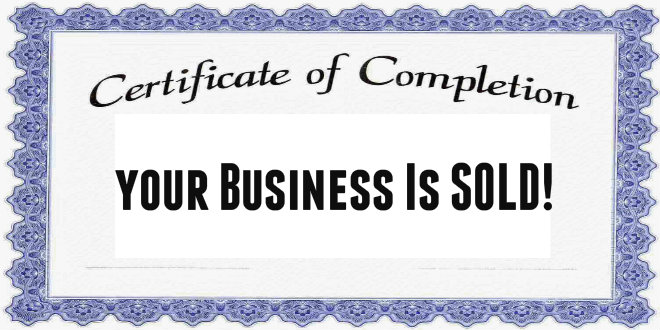
 5 Key Due Diligence Requests
5 Key Due Diligence Requests
Due diligence is the analysis and investigative process that follows an offer or letter of intent from the buyer. When you make it to this stage it’s safe to say that the buyer is serious.
The idea of due diligence is to evaluate the potential opportunities and risks of the purchase, and discover any other particular issues. Once completed, due diligence will facilitate the buyers team to manage their thought processes efficiently, so as to deal with and prioritise the decision-making procedure. It will ultimately lead to optimising any deal terms while recognising and addressing risks linked with the transaction.
It’s important to understand that due diligence does not merely entail gathering data and checking boxes. Largely, achievements are based on the worth of future cash flows. Your buyers will need to determine the worth of the particular assets that they are buying or the responsibilities that they are assuming. They will want to analyse the data in the perspective of how upcoming cash flows will be influenced by the issues examined. Due diligence items not only include the hard information that your buyer requires to measure prospective financial, legal, and regulatory experiences, but also provide insights into your company’s physical structure, prevalent practices, available human resources, operational processes, relationships with supplier and customer, competitiveness in the market, and future outlook. Following are the main items required for the purpose of due diligence by the buyer.
Due Diligence Request #1: Sales Forecast
The sales forecast is of utmost importance in a business plan, revealing the detailed forecasted sales for your company. Almost all companies require producing forecasts of their short to medium term sales. Sale forecast is of special attention to potential investors eager to gauge the dimension of a prospective purchase. It is one of the most cared about Due Diligence items requested by the buyer’s team. On the other hand, it is also a complicated section for entrepreneurs to prepare, as they might not have historical statistics upon which to base their forecasts. The key for business owners is to build some reasonable assumptions that they can support. Preferably they must look to discover benchmarks, hence aligning their figures with other businesses in the industry. Sales forecasting need not be 100 % accurate, as nobody can foresee the future. Sales forecasting is intended to assist your buyers weigh up the existing and future demand levels, so that they can estimate the resources that would be required to make those sales. One massive thing to keep in mind is that whatever you supply to the buyer you’ll have to make sure you can make it happen! Don’t inflate figures or you’ll really have a struggle on your hands when it comes to puting the proof in the pudding.
Due Diligence Request #2: Employee Information
The human resource being the most important and dynamic asset of any organisation, your buyers can’t overlook employee information. The employee information term is used for a broad and comprehensive system that keeps and tracks records pertaining to all the employees in an organisation. It reveals ample details related to their resumes, contracts, job descriptions, leave and attendance records, inter-company transfers and the workflow concerned during the transfer procedure, track of appraisals and promotions etc. It also includes Recruitment, Payroll and Training Systems of employees in your company. Buyers will be looking out for key employees so it’s important to make sure they don’t jump ship before or during the sale.
Due Diligence Request #3: P&L and Balance Sheet plus Monthly Management Information
P&L and Balance Sheet are the third most important Due Diligence items requested by Buyer’s Team. To guide your business to the financial track you desire it to take, you need to understand where you’re earning money and where you’re spending it. That’s why you must maintain accounts and generate regular reports, including profit & loss account and balance sheet. Whenever you sell your goods or services to others, it costs you money to pay for the production of those goods and services. And, in return for those goods or services, you will be receiving money likewise. So, if you are getting more than you are paying for, you should be making a profit. This record is kept under profit & loss account.
Your balance sheet depicts the balance between your assets and liabilities. The balance sheet for your company provides a clear view of your business worth at one specific moment in time. Generally, it is done at the end of the financial year and provides you the situation of the company from one year to the next. However one can also draft monthly or quarterly balance sheets. Your buyers will be examining financial performance and weighing it against earlier performance. You should facilitate them in the process by providing any details that they request.
The Monthly Management Information shall provide a snapshot of the performance statistics available in the Management Information System on the last day of every month. It is usually posted several days after the ending of the reporting time. Your buyer would like to take a look at the MMI, so you should make sure that you prepare this document every month.
Due Diligence Request #4: Statutory Information on Company
Statutory information on company pertains to the information relating to its statute, code, or written law, which helps to understand the company infrastructure. This information is usually given in the memorandum and articles, and should not be a problem for you to and your team to create.
Due Diligence Request #5: List of Client Contracts
Your clients are your business assets. Consequently, a major part of being successful in business is to keep them close. The number and worth of your client contracts would determine the sale price for your business. Apart from scrutinising client contracts, your buyer may also like to know how you keep the records of your customers.
The Due Diligence aspect of selling your business is a lengthy and time consuming one. If you have time on your hands now, it’s in you best interest to prepare the information needed proactively rather than re-actively. In other words, sort this out now so that when it comes to crunch time you can put all your efforts on making sure you’re hitting the forecasted targets! At Sell Your Business, we’ve created a fantastic Due Diligence pack that will help you prepare. Don’t let the buyer or your team hold you to ransom – get one step ahead! Check out our Due Diligence collection today!
Kim Brown, Co-Founder of Business Wand, helps business owners navigate their way through the start to finish process of selling a business. Her specialty is to help owners cut costs and increase profits prior to sale. To understand how you can sell your business quickly for the highest sales price, purchase the book, “How To Sell A Business: The #1 guide to maximising your company value and achieving a quick business sale”







 So there you are, you’ve just finished uploading your last document into the virtual data room and ticked off the corresponding item from the list provided to you by your solicitor or business broker.
So there you are, you’ve just finished uploading your last document into the virtual data room and ticked off the corresponding item from the list provided to you by your solicitor or business broker.


 5 Key Due Diligence Requests
5 Key Due Diligence Requests